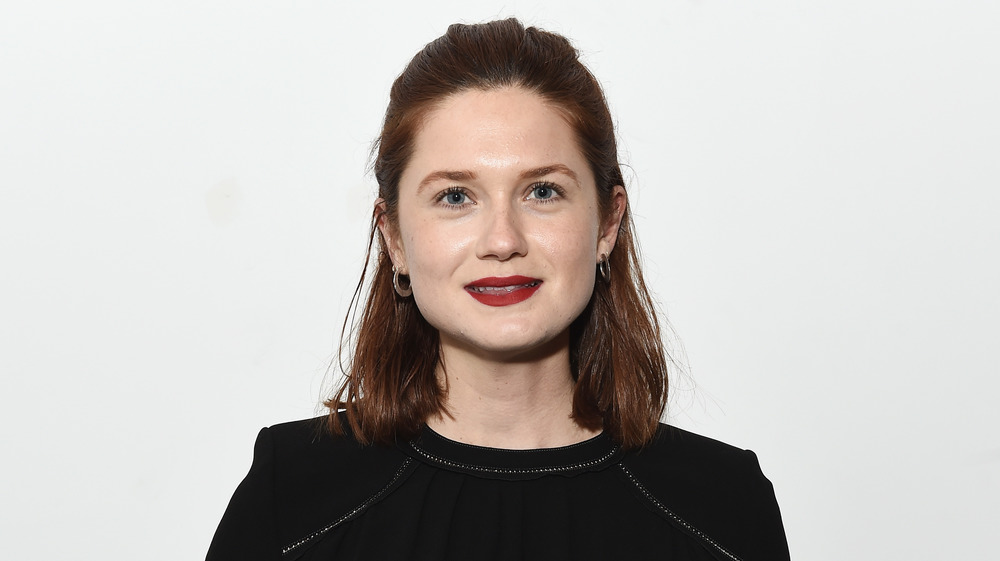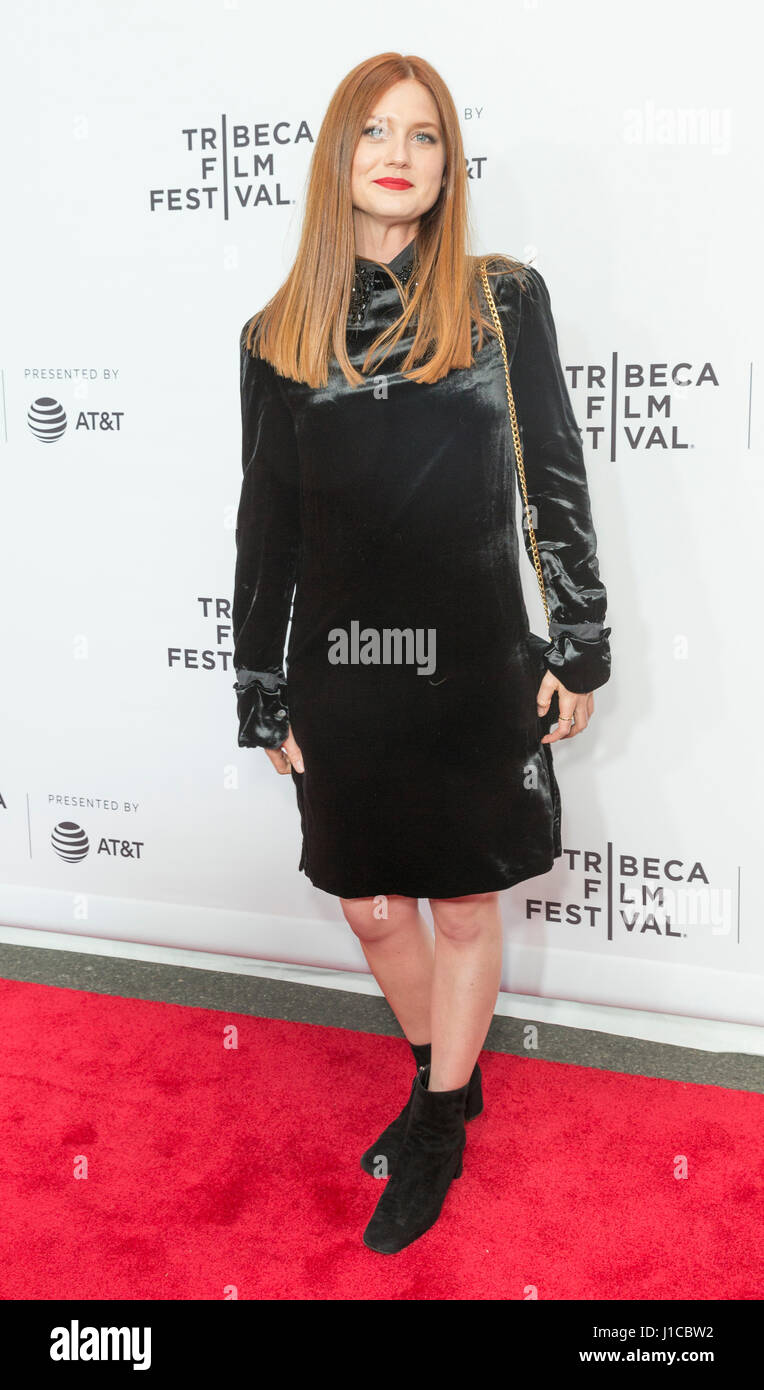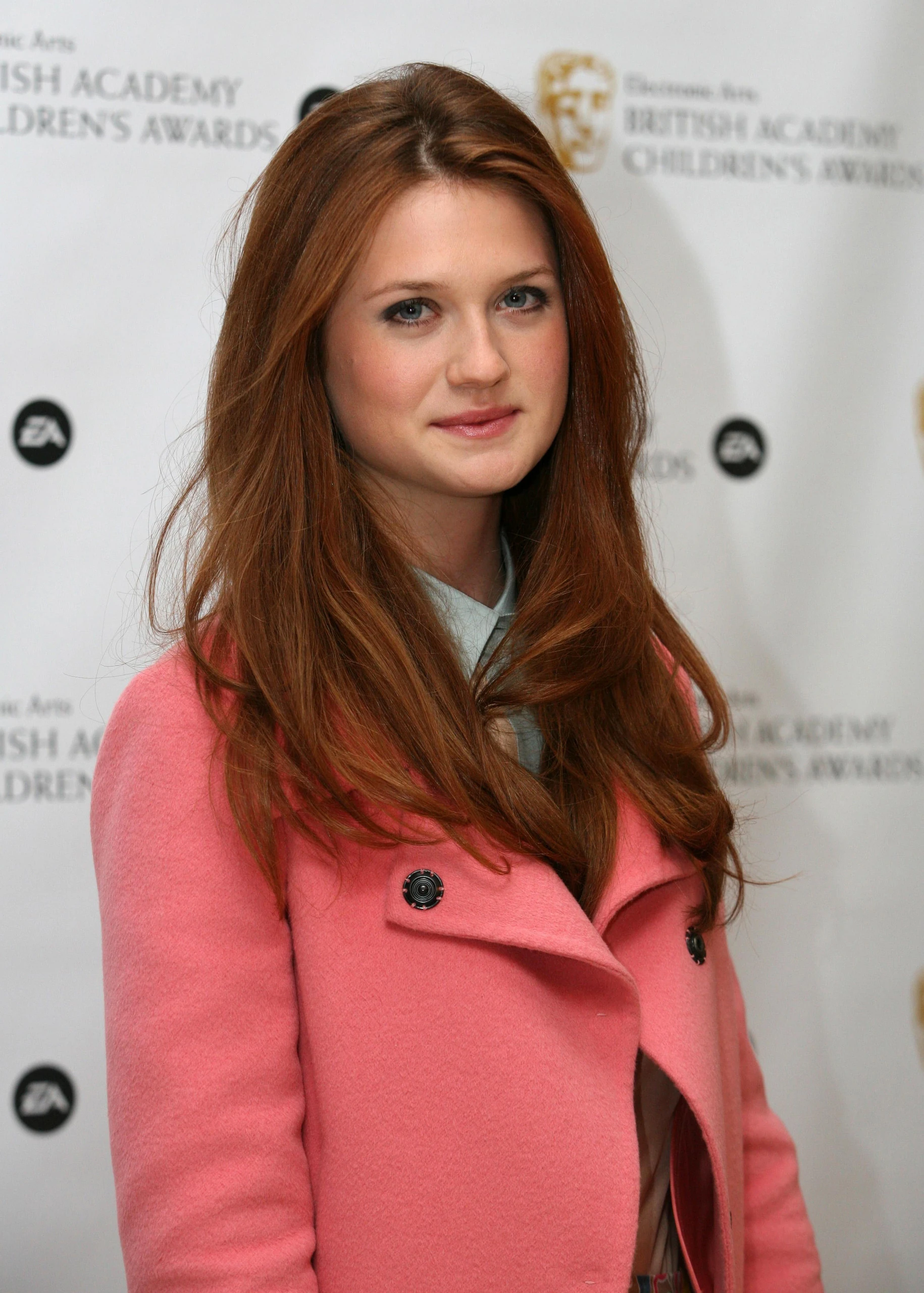Getting To Know Bonnie Wright Director: Beyond The Wand
It's truly something when someone known for one big thing steps into a whole different creative space, and that's exactly what Bonnie Wright has done. Most people, you know, remember her for playing Ginny Weasley in the Harry Potter films, which is a pretty huge part of movie history. But, as a matter of fact, her story doesn't stop there at all. She's quietly, yet very surely, made a name for herself behind the camera, stepping into the role of a director. This shift shows a real passion for storytelling, not just acting it out, but crafting it from the very start.
This change in her career path is rather interesting to watch unfold. It's like seeing someone grow up right before your eyes, moving from being a young actor to someone who calls the shots on a film set. Her journey into being a bonnie wright director is a clear sign that she has a deep connection to making movies, and it’s a connection that goes way past just being in front of the lens. She’s found a new way to express her artistic side, and that's something pretty cool to think about, isn't it?
For anyone curious about what happens after a big acting role, or perhaps someone who just loves learning about creative people, looking at Bonnie Wright's work as a director offers a fresh perspective. She's been busy creating her own visions, telling tales she cares about, and showing off a different kind of talent. It’s a good moment to really get into what she’s been up to and see what kind of movies she’s been making, so, we can appreciate her growth as a filmmaker.
Table of Contents
- Bonnie Wright: Personal Details & Biography
- The Journey of Bonnie Wright Director
- A Look at Her Directorial Works
- Bonnie Wright's Unique Voice in Filmmaking
- The Impact of a Bonnie Wright Director
- Frequently Asked Questions About Bonnie Wright Director
- Conclusion
Bonnie Wright: Personal Details & Biography
Here's a quick look at some key facts about Bonnie Wright, the person behind the camera.
| Full Name | Bonnie Francesca Wright |
| Date of Birth | February 17, 1991 |
| Place of Birth | London, England |
| Nationality | British |
| Known For | Acting (Ginny Weasley in Harry Potter), Directing, Screenwriting, Producing |
| Education | London College of Communication (University of the Arts London) |
| Active Years | 2001–present |
The Journey of Bonnie Wright Director
It's interesting to see how Bonnie Wright moved from being a familiar face on screen to someone who builds the whole visual world behind it. Her path to becoming a director wasn't just a sudden switch, but more like a thoughtful evolution. She had a clear desire to tell stories in her own way, which, you know, is a different kind of creative challenge.
From Child Star to Filmmaker
Bonnie Wright started acting at a very young age, as a matter of fact, becoming a household name worldwide with the Harry Potter series. This experience, arguably, gave her a unique view of how movies are put together. She spent years on big sets, seeing how directors worked, how crews collaborated, and how stories came to life from scripts. This kind of hands-on learning, you could say, is very valuable for anyone hoping to direct.
But, you know, just being an actor wasn't enough for her. She had ideas of her own she wanted to bring out. She often spoke about how she wanted to create her own narratives, to have more control over the message and the visual style. This yearning for creative command really pushed her to consider a different role in the film industry. It's a common story for actors who feel a pull to the other side of the camera, actually.
Early Steps Behind the Camera
Her first real steps into directing came with short films. This is a pretty typical starting point for many aspiring directors, and it allows for a lot of experimentation without the pressure of a big budget. She went to the London College of Communication, which, you know, helped her get a more formal education in filmmaking. This academic background, combined with her practical experience on sets, gave her a solid foundation.
These early projects were like her proving ground. She got to try out different camera angles, work with small crews, and figure out her own way of telling a story. It was a time for learning what works and what doesn't, and, in a way, finding her own unique voice. This period was very important for her development as a bonnie wright director, giving her the confidence to tackle bigger projects later on.
A Look at Her Directorial Works
When we talk about Bonnie Wright director, it's really about looking at the actual films she has created. She's been busy building a body of work that shows her interests and her growing skill. Each project, you know, adds another layer to her identity as a filmmaker, showing different facets of her artistic vision.
Short Films and Music Videos
She has directed several short films, and these are often where a director's true style first appears. One of her notable early works is "Separate We Come, Separate We Go" (2012), which premiered at the Cannes Film Festival Short Film Corner. This was a pretty big deal for a young director. It showed a certain sensitivity in her storytelling, focusing on human connections and feelings. The film, in some respects, gave a glimpse into the kind of narratives she'd be drawn to.
Another piece is "Medusa's Ankles" (2018), which stars Jason Isaacs, who, you know, also played Lucius Malfoy in Harry Potter. This film, based on a short story by A.S. Byatt, explores themes of beauty, perception, and inner life. It's a bit more complex, visually and thematically, showing her willingness to take on different kinds of stories. She also directed a music video for Pete Yorn and Scarlett Johansson's song "Apart," which, you know, allowed her to play with visual rhythm and mood in a different format.
These shorter works, actually, are where she has refined her craft. They are like small canvases where she can experiment with lighting, character development, and pacing. You can see her developing a particular eye for detail and a knack for drawing out subtle emotions from her actors. It's a very hands-on way to learn the ropes of filmmaking, and, you know, it has clearly paid off.
Feature Film Aspirations
While her current directorial work largely consists of short films and music videos, the natural progression for many directors is towards feature films. Bonnie Wright has expressed interest in directing longer narratives, which would allow her to explore characters and plots in much greater depth. She has talked about developing projects that could become full-length movies. This is a big step, and, you know, it takes a lot of planning and funding.
The move to a feature film would mark a significant milestone for bonnie wright director. It would mean managing a larger crew, a longer production schedule, and a more expansive story. Fans and critics alike are waiting to see what kind of full-length story she might bring to the screen. It's a really exciting prospect for her career, and, you know, it could open up even more opportunities for her to share her unique vision with a wider audience.
Bonnie Wright's Unique Voice in Filmmaking
Every director, you know, develops a certain style or voice that makes their work recognizable. For Bonnie Wright director, this voice is still growing, but we can already see some clear patterns in her approach to storytelling and the kinds of messages she wants to share. It's a bit like watching an artist find their signature brushstrokes.
Storytelling and Visual Approach
Her storytelling often seems to focus on intimate human experiences. She tends to explore relationships, feelings, and the inner lives of her characters. It's not usually about big explosions or grand spectacles, but more about the quiet moments that reveal something important about people. This focus on human connection is, arguably, a strength, allowing her to create films that feel very personal and relatable.
Visually, her films often have a thoughtful quality. She uses the camera to convey mood and emotion, sometimes with a gentle, almost poetic touch. The way she frames shots, the colors she chooses, and how she uses light all contribute to a specific feeling. It's like she wants you to really feel what the characters are feeling, and, you know, the visuals help with that a lot. She pays attention to the smaller details that can tell a bigger story without needing a lot of dialogue.
Themes and Messages
When you look at the works from bonnie wright director, you can pick out some recurring themes. She seems interested in themes of identity, self-discovery, and the complexities of human relationships. Her films often present characters who are grappling with something internal, trying to figure out their place in the world or understand their own feelings. This focus on the psychological and emotional landscape of her characters gives her work a certain depth.
She also seems to have a keen interest in environmental issues and sustainability, which sometimes comes through in her personal advocacy and, perhaps, subtly influences the stories she chooses to tell. This underlying concern for the world around us, you know, adds another layer to her creative output. It’s like her films are not just entertainment, but also a way for her to explore ideas that matter to her personally, and, you know, that's pretty cool.
The Impact of a Bonnie Wright Director
The work of any artist, including a director, can have an impact beyond just the films themselves. For Bonnie Wright director, her journey is inspiring, and her future work could really shape conversations and encourage others. It's about more than just making movies; it's about what those movies represent and how they influence the creative community, you know?
Inspiring Others
Bonnie Wright's transition from a widely recognized actress to a director is, in a way, a very inspiring story for many. It shows that it's possible to change paths, to follow a different creative calling, even after achieving great success in one area. For young people who grew up watching her on screen, seeing her now behind the camera can be a powerful message: that you can pursue your true passions, whatever they might be. It tells them, you know, that growth and change are absolutely possible.
Her commitment to independent filmmaking and telling stories that resonate with her personally also encourages others to find their own authentic voices. She’s not just chasing big blockbusters; she’s making films that mean something to her. This kind of dedication, you know, can really motivate aspiring filmmakers who might feel daunted by the industry. It's about finding your own way to tell stories, which, honestly, is what really matters.
What's Next for Bonnie Wright
As a bonnie wright director, her career is still very much in motion. She continues to work on new projects, always looking for interesting stories to bring to life. We can expect to see her continue to experiment with different genres and themes, always pushing her own creative boundaries. She's not one to stand still, which is a good thing for anyone who enjoys her work.
She remains an advocate for environmental causes, and it's quite possible that her passion for sustainability will continue to influence her artistic choices. Whether it's through documentaries, narrative films, or other forms of media, she's likely to keep using her platform to shed light on important issues. Her journey as a filmmaker is, you know, one to watch closely in the coming years, as she undoubtedly has more to share with the world.
Frequently Asked Questions About Bonnie Wright Director
Has Bonnie Wright directed any feature films?
As of now, Bonnie Wright's directorial work primarily includes short films and music videos. She has expressed a strong interest in moving into feature-length projects and is, you know, actively developing ideas for them. It's a big step for any director, and she's taking her time to find the right story to tell on a larger scale.
What kind of stories does Bonnie Wright tell as a director?
Bonnie Wright tends to tell stories that focus on intimate human experiences and relationships. Her films often explore themes of identity, personal connection, and the emotional lives of characters. She has a way of showing the subtle details that make people, you know, feel very real and relatable. You'll find a lot of heart in her narratives.
Did Bonnie Wright go to film school?
Yes, she did. Bonnie Wright studied at the London College of Communication, which is part of the University of the Arts London. This formal education, you know, helped her gain a deeper understanding of filmmaking techniques and theory, complementing her practical experience from years of acting on film sets. It was a good way to really learn the craft.
Conclusion
The journey of Bonnie Wright director is a compelling example of creative evolution. She has truly moved beyond her well-known acting role to forge a distinct path behind the camera. Her work so far shows a thoughtful approach to storytelling, focusing on intimate human moments and visually engaging narratives. It’s pretty clear she has a genuine passion for making movies, and, you know, it shows in her projects.
Her shift into directing highlights a real commitment to artistic expression and a desire to shape stories from their very inception. We’ve seen her grow from early short films to more complex projects, always with a personal touch. To learn more about on our site, and for more details about her specific projects, you can check out her profile on sites like IMDb. This ongoing development makes her a director to keep an eye on, as she continues to share her unique vision with audiences. You can also link to this page to find out more.

The Stunning Transformation Of Bonnie Wright

Bonnie wright director hi-res stock photography and images - Alamy

Bonnie Wright | Emma Watson Wiki | FANDOM powered by Wikia